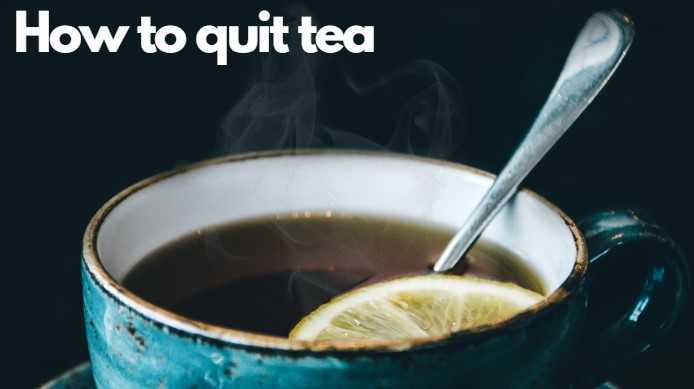How To Quit Tea Addiction
Welcome, tea lovers! If you’ve found yourself reaching for that cup of tea more often than you’d like, you’re not alone. Tea addiction, while not as widely discussed as other dependencies, can sneak up on you and become a daily struggle. But fear not, because today in this post, we’ll explore effective strategies on how to quit tea addiction and regain control of your tea consumption. Say goodbye to those cravings and hello to a healthier you!
Understanding Tea Addiction
Before we dive into the methods to quit tea addiction, let’s take a moment to understand what it is and why it can be challenging to overcome. Tea addiction isn’t just about enjoying a soothing beverage, it’s about the habitual craving for the caffeine boost and comfort it provides. Much like other addictions, tea addiction involves both physical and psychological components, making it a tough habit to break.
Acknowledging the Need for Change
The first step in overcoming any addiction is acknowledging that there’s a problem. If you find yourself reaching for tea multiple times a day, experiencing withdrawal symptoms when you don’t have it, or feeling guilty about your consumption, it may be time to consider making a change. Remember, there’s no shame in seeking help or support as you embark on this journey.
Setting Clear Goals
Once you’ve recognized the need for change, it’s essential to set clear and achievable goals. Whether you want to quit tea cold turkey or gradually reduce your intake, having a plan in place will increase your chances of success. Start by identifying your reasons for quitting and visualize the benefits of a tea-free lifestyle. Whether it’s improved health, better sleep, or saving money, keeping your goals in mind will help you stay motivated along the way.
Practical Strategies to Quit Tea Addiction
Now let’s explore some practical strategies to help you break free from tea addiction:
Gradual Reduction
If quitting tea cold turkey feels overwhelming, consider gradually reducing your intake instead. Start by cutting back on the number of cups you consume each day, replacing some with alternative beverages like herbal tea or hot water. Slowly tapering off your tea consumption can make the transition smoother and minimize withdrawal symptoms.
Identify Triggers
Take some time to identify the triggers that lead to your tea cravings. Whether it’s stress, boredom, or social situations, recognizing these triggers will allow you to develop healthier coping mechanisms. Find alternative activities or distractions to replace your tea-drinking habit, such as going for a walk, practicing deep breathing exercises, or engaging in a hobby you enjoy.
Substitute with Herbal Tea
If you’re addicted to the caffeine in tea, consider switching to herbal tea instead. Herbal teas come in a variety of flavors and can provide a comforting alternative without the stimulating effects of caffeine. Experiment with different blends until you find one that satisfies your cravings without the addictive properties of traditional tea.
Stay Hydrated
One of the reasons we reach for tea is to quench our thirst, but often, we can confuse thirst with hunger or cravings. Make sure you’re staying adequately hydrated throughout the day by drinking plenty of water. Keeping a reusable water bottle with you at all times can serve as a reminder to hydrate regularly and reduce the urge to reach for tea.
Find Support
Quitting any addiction is easier when you have a support system in place. Whether it’s friends, family, or online communities, surround yourself with people who understand your struggle and can offer encouragement along the way. Sharing your experiences and progress with others can help keep you accountable and motivated to stay on track.
Practice Self-Care
Finally, don’t forget to prioritize self-care as you work towards quitting tea addiction. Engage in activities that nourish your mind, body, and soul, such as exercise, meditation, or spending time in nature. Taking care of yourself holistically will not only help you overcome your addiction but also improve your overall well-being.
Celebrating Success and Staying Committed
As you embark on your journey to quit tea addiction, remember to celebrate your successes along the way, no matter how small they may seem. Whether it’s going a day without tea or resisting the urge during a challenging moment, each accomplishment brings you one step closer to your goal. Stay committed to your plan, be patient with yourself, and never hesitate to seek help if you need it.
Conclusion
Breaking free from tea addiction is a journey that requires determination, patience, and support. By acknowledging the problem, setting clear goals, and implementing practical strategies, you can overcome your dependency on tea and embrace a healthier lifestyle. Remember, you’re not alone in this journey, and with the right mindset and support, you can achieve success. Here’s to a tea-free future and a happier, healthier you!
